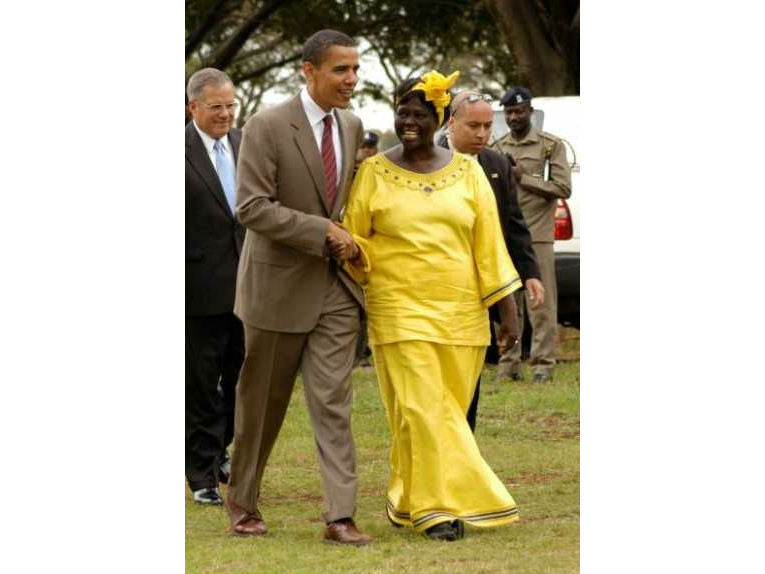First "green Nobel" winner, Wangari Maathai dies
The environmental campaigner, political conscience and winner of the first "green Nobel", Wangari Maathai, has died. She was 71 and was suffering from cancer.
Her death was announced on the website of the Green Belt Movement, the organisation she founded in 1977.
"It is with great sadness that the family of Professor Wangari Maathai announces her passing away on 25th September, 2011, at the Nairobi Hospital, after a prolonged and bravely borne struggle with cancer. Her loved ones were with her at the time.
Professor Maathai's departure is untimely and a very great loss to all who knew her - as a mother, relative, co-worker, colleague, role model, and heroine; or who admired her determination to make the world a more peaceful, healthier, and better place."
Wangari Maathai was a woman of firsts. She was the first woman in east and central Africa to gain a PHD; the first to chair a department at the University of Nairobi; the first to be appointed professor; and the first black woman to win a Nobel Prize.
Her environmental work began after talking with rural women in Kenya. The damage to the environment, she recognised, was having a great impact on men than women. It was damaging sustainable communities. The population was growing and the environment couldn't keep up. The planting of trees she championed was an economic as well as an environmental solution. It offered a supply of firewood and protected water sources and crops.
This strategy led to the formation of the Green Belt Movement in 1977. It has planted an estimated 45 million trees in Kenya. The strategy was a source of employment, it gave new skills to women. As the Green Belt Movement writes it was also an introduction to wider issues of inequality, bad governance, communities no longer able to protect land and livelihoods. The planting of trees "became an entry point for a larger social, economic and environmental agenda."
Maathai also led a political struggle against the corrupt regime of Daniel arap Moi. She campaigned against land grabs, most notably that of the public land at Karura Forest. It led to beatings, arrests and imprisonment but also international notoriety.
In 2003 she embarked on a political career when President Mwai Kibaki , made her Deputy Minister for the Environment. Her key issues and campaigns centred around reforestation and the protection of forests as well as education and dealing with the HIV and AIDS epidemic.
The work drew her to the attention of the international audience and in 2004 she women the Nobel Peace Prize.
She continued her work with international organisations like the United National Environment Programme (UNEP) which pledged to plant a billion trees around the world. The achieved the goal in less than a year so increased the target to 14 billion.
Prof. Maathai leaves her three children - Waweru, Wanjira, and Muta - and a granddaughter, Ruth Wangari.
Top Image: Nobel Laureate Proffessor Wangari Maathai with US Senator (at the time) Barrack Obama in Nairobi, Kenya. Credit: Fredrick Onyango










